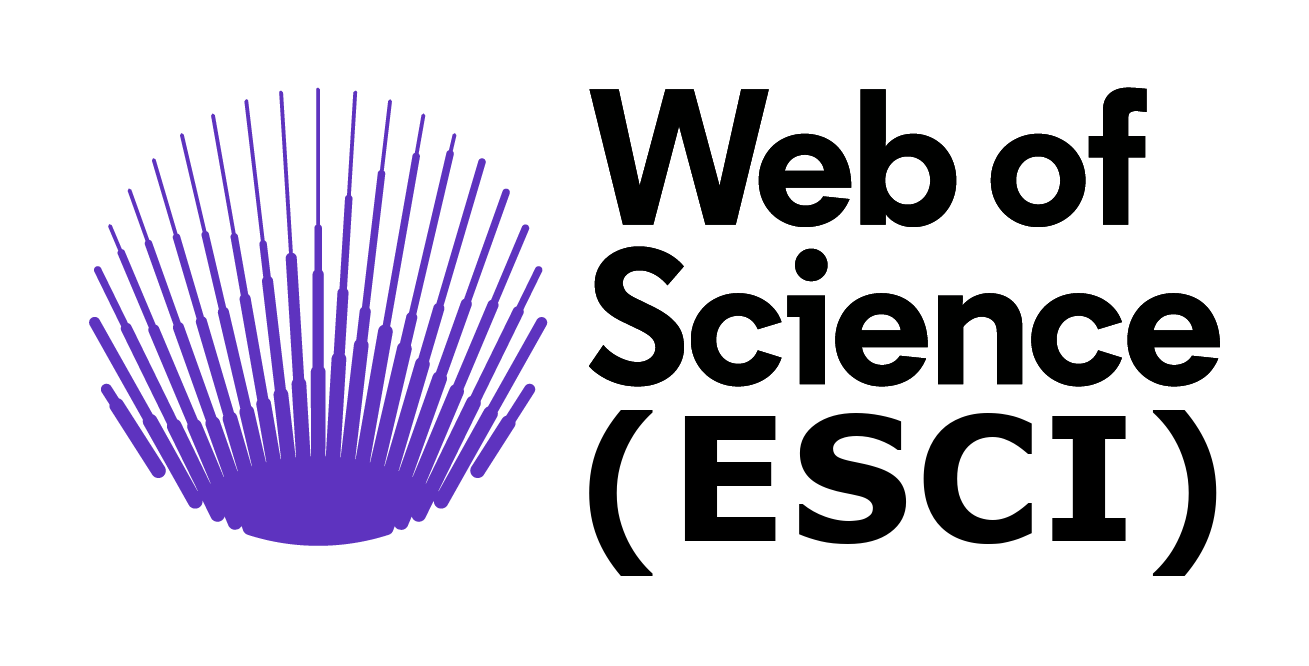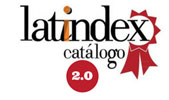Digital gamification in preschool learning: a systematic review of the literature
DOI:
https://doi.org/10.29019/enfoqueute.905Keywords:
digital gamification, pre-school education, systematic literature review, technology enhanced learningAbstract
In the educational context, gamification has emerged as an effective strategy to enhance learning and motivation. With the rise of information and communication technologies, digital gamification (DG) has emerged. Although there are numerous studies summarizing the contributions of gamification in education, very few have included preschool education. The present systematic review, supported by 25 primary studies published between 2014 and 2022 and indexed in Scopus and Web of Sciences, seeks to close this gap by characterizing the main contributions, and qualitatively synthesizing the effects of DG. The results indicate that there is a growing interest in the topic, where most of the studies originate in Asia; they are published in journals; and are based on the proposal of video games for computers or mobile devices that seek to improve language learning. Narrative approach research predominates, based on samples of less than 10 participants, employing Achievement (Progression) type game elements. The 15 studies that measured the effect of DG report positive results.
Downloads
References
Arufe-Giráldez, V., Sanmiguel-Rodríguez, A., Ramos-Álvarez, O., y Navarro-Patón, R. (2022). Gamification in Physical Education: A Systematic Review. Education Sciences, 12(8), 540. https://doi.org/10.3390/educsci12080540/
Ati, M., Kabir, K., Abdullahi, H., y Ahmed, M. (2018). Augmented Reality Enhanced Computer Aided Learning for Young Children. En 2018 IEEE Symposium on Computer Applications & Industrial Electronics (ISCAIE 2018) (pp. 129-133). IEEE. 10.1109/ISCAIE.2018.8405457 https://doi.org/https://doi.org/10.1109/ISCAIE.2018.8405457/
Atighi Lorestani, E., y Khalili, M. (2017). How lighting dynamics create social interactive game. Proceedings of the 19th International Conference on Engineering and Product Design Education: Building Community: Design Education for a Sustainable Future, E and PDE 2017, 680-685. https://www.scopus.com/inward/record.uri?eid=2-s2.0-85042140667&partnerID=40&md5=5ad7d8a7bdef500ae6a6321adbad23ce/
Batanero, C. (2001). Introducción a la inferencia. En G. de I. FQM (Ed.), Didáctica de la Estadística (1st ed., pp. 15–26). UGR.
Bhavnani, S., Mukherjee, D., Dasgupta, J., Verma, D., Parameshwaran, D., Divan, G., Sharma, K. K., Thiagarajan, T., y Patel, V. (2019). Development, feasibility and acceptability of a gamified cognitive DEvelopmental assessment on an E-Platform (DEEP) in rural Indian pre-schoolers–a pilot study. Global Health Action, 12(1). https://doi.org/10.1080/16549716.2018.1548005/
Calderón, A., y Ruiz, M. (2015). A systematic literature review on serious games evaluation: An application to software project management. Computers & Education, 87, 396-422. https://doi.org/10.1016/j.compedu.2015.07.011/
Cladis, A. E. (2020). A shifting paradigm: An evaluation of the pervasive effects of digital technologies on language expression, creativity, critical thinking, political discourse, and interactive processes of human communications. E-Learning and Digital Media, 17(5), 341-364. https://doi.org/10.1177/2042753017752583/
Creswell, J. W., y Creswell, J. D. (2018). Research Design: Qualitative, Quantitative, and Mixed Methods Approaches. SAGE Publications. https://www.ucg.ac.me/skladiste/blog_609332/objava_105202/fajlovi/Creswell.pdf/
Dichev, C., y Dicheva, D. (2017). Gamifying education: What is known, what is believed and what remains uncertain: a critical review. International Journal of Educational Technology in Higher Education, 14(1), 9. https://doi.org/10.1186/s41239-017-0042-5/
Dicheva, D., Dichev, C., Agre, G., y Angelova, G. (2015). Gamification in Education: A Systematic Mapping Study. Journal of Educational Technology & Society, 18(3), 75-88. JSTOR. https://www.jstor.org/stable/jeductechsoci/
García-Murillo, G., Novoa-Hernández, P., y Rodríguez, R. S. (2020). Technological acceptance of Moodle through latent variable modeling – a systematic mapping study. Interactive Learning Environments, 1-17. https://doi.org/10.1080/10494820.2020.1857786/
Hamari, J., Koivisto, J., y Sarsa, H. (2014). Does Gamification Work? -A Literature Review of Empirical Studies on Gamification. 2014 47th Hawaii International Conference on System Sciences, 3025-3034. https://doi.org/10.1109/HICSS.2014.377/
Hebebci, M. T., y Alan, S. (2021). Gamification in education: An overview of the literature. En A. Csiszárik-Kocsir & & P. Rosenberger (Eds.), Current Studies in Social Sciences 2021 (pp. 174-194). ISRES Publishing.
Kalogiannakis, M., Papadakis, S., y Zourmpakis, A.-I. (2021). Gamification in Science Education. A Systematic Review of the Literature. Education Sciences, 11(1), 22. https://doi.org/10.3390/educsci11010022/
Kapp, K. M. (2012). The Gamification of Learning and Instruction: Game-based Methods and Strategies for Training and Education. Wiley.
Loganathan, P., Talib, C. A., Thoe, N., Aliyu, F., y Zawadski, R. (2019). Implementing Technology Infused Gamification in Science Classroom: A Systematic Review and Suggestions for Future Research. Learning Science and Mathematics, 14, 60-73.
Marín Suelves, D., Vidal Esteve, M. I., Donato, D., y Granados Saiz, J. (2021). Análisis del estado del arte sobre el uso de los videojuegos en Educación Infantil y Primaria. Innoeduca. International Journal of Technology and Educational Innovation, 7(2), 4-18. https://doi.org/10.24310/innoeduca.2021.v7i2.11541/
Martens, M., Rinnert, G. C., y Andersen, C. (2018). Child-centered design: Developing an inclusive letter writing app. Frontiers in Psychology, 9(DEC). https://doi.org/10.3389/fpsyg.2018.02277/
Mongeon, P., y Paul-Hus, A. (2016). The journal coverage of Web of Science and Scopus: A comparative analysis. Scientometrics, 106(1), 213-228. https://doi.org/10.1007/s11192-015-1765-5/
Murillo, G. G., Novoa-Hernández, P., y Rodríguez, R. S. (2021). Technology Acceptance Model and Moodle: A systematic mapping study. Information Development, 37(4), 617-632. https://doi.org/10.1177/0266666920959367/
Nicolaidou, I., Tozzi, F., y Antoniades, A. (2022). A gamified app on emotion recognition and anger management for pre-school children. International Journal of Child-Computer Interaction, 31. https://doi.org/10.1016/j.ijcci.2021.100449/
Oliva-Maza, A., Ayuso-Escuer, N., Coma-Rosello, T., y Torres-Moreno, E. F. (2021). Mystery of the Runaway Letrabytes: Inclusive Assessment of Phonological Awareness with Tangible Gamification. Revista Iberoamericana de Tecnologias del Aprendizaje, 16(4), 424-432. https://doi.org/10.1109/RITA.2021.3136442/
Ongoro, C. A., y Mwangoka, J. W. (2019). Effects of digital games on enhancing language learning in Tanzanian preschools. Knowledge Management and E-Learning, 11(3), 325-344. https://doi.org/10.34105/j.kmel.2019.11.017/
Page, M. J., McKenzie, J. E., Bossuyt, P. M., Boutron, I., Hoffmann, T. C., Mulrow, C. D., Shamseer, L., Tetzlaff, J. M., Akl, E. A., Brennan, S. E., Chou, R., Glanville, J., Grimshaw, J. M., Hróbjartsson, A., Lalu, M. M., Li, T., Loder, E. W., Mayo-Wilson, E., McDonald, S., … Moher, D. (2021). The PRISMA 2020 statement: An updated guideline for reporting systematic reviews. Systematic Reviews, 10(1), 89. https://doi.org/10.1186/s13643-021-01626-4/
Peled, S., y Schocken, S. (2014). Mobile learning and early age mathematics. Proceedings of the 10th International Conference on Mobile Learning 2014, ML 2014, 19-25. https://www.scopus.com/inward/record.uri?eid=2-s2.0-84944128737&partnerID=40&md5=1e6a331eec84e4ca6d4d29eecb4c45ea. ISBN: 978-989-8704-02-3/
Plass, J. L., Mayer, R. E., y Homer, B. D. (2020). Handbook of Game-Based Learning. MIT Press. https://books.google.es/books?id=5NCMEAAAQBAJ/
Portela Iglesias, M. A., y García Fernández, G. (2017). Digital peer-assessment activities: students as the heroes of a transition from content consumers to creators of significative learning. En L. Chova, A. Martinez, y I. Torres (Eds.), INTED2017: 11TH international technology, education and development conference (pp. 1705-1714). IATED-INT Assoc Technology Education & Development. doi: 10.21125/inted.2017.0530.
Rahmah, M., y Siti Aishah, Z. (2019). Effectiveness of kinect-based application in gamification approach for preschooler: Case study in Taska Permata Perpaduan, Kuantan, Pahang, Malaysia. ACM International Conference Proceeding Series, 124-129. https://doi.org/10.1145/3306500.3306534
Riska, N., Handini, M. C., Asmawi, M., y Jarudin. (2021). Instructional-based Gamification in Improving Knowledge in Early Childhood. International Journal of Early Childhood Special Education, 13(2), 948-958. https://doi.org/10.9756/INT-JECSE/V13I2.211138/
Rivas, R. S., Novoa-Hernández, P., y Rodríguez, R. S. (2019). Evaluation of the presence of digital competences in higher education institutions | [Evaluación de la presencia de competencias digitales en las instituciones de educación superior en América Latina]. Revista Ibérica de Sistemas e Tecnologias de Informação, 2019(E21), 23-36. https://doi.org/10.20511/pyr2019.v7n2.329
Ryan, R. M., & Deci, E. L. (2000). Self-determination theory and the facilitation of intrinsic motivation, social development, and well-being. American Psychologist, 55(1), 68-78. https://doi.org/10.1037/0003-066X.55.1.68
Saltos-Rivas, R., Novoa-Hernández, P., & Serrano Rodríguez, R. (2021). On the quality of quantitative instruments to measure digital competence in higher education: A systematic mapping study. PLOS ONE, 16(9), e0257344. https://doi.org/10.1371/journal.pone.0257344
Sasi, S., Chang, M., Altinay-Aksal, F., Kayimbasioglu, D., Haci, H., Kinshuk, y Altinay-Gazi, Z. (2017). Technology enhanced instruction: An example of english language learning in the context of peace. Eurasia Journal of Mathematics, Science and Technology Education, 13(6), 1605-1614. https://doi.org/10.12973/eurasia.2017.00687a
Schocken, S., y Kupferman, R. (2018). USING GAMES TO LEARN EARLY AGE ALGEBRA. En L. Chova, A. Martinez, & I. Torres (Eds.), edulearn18: 10th international conference on education and new learning technologies (pp. 10344-10353). IATED-INT Assoc Technology Education & Development.
Subhash, S., y Cudney, E. A. (2018). Gamified learning in higher education: A systematic review of the literature. Computers in Human Behavior, 87, 192-206. https://doi.org/10.1016/j.chb.2018.05.028/
Sudarmilah, E., y Arbain, A. F. B. (2019). Using gamification to stimulate the cognitive ability of preschoolers. International Journal of Innovative Technology and Exploring Engineering, 8(6), 1250-1256.
Torres-Rojas, I. S., Garcés-Bolaños, Y. S., y León Blanco, D. A. (2022). Development of an M-Learning application for early childhood education in emotional consciousness [Desarrollo de una aplicación M-Learning para educar en conciencia emocional a la primera infancia]. Gaceta Medica de Caracas, 130, S779-S790. https://doi.org/10.47307/GMC.2022.130.s3.31/
Wang, J., Song, Q., Gao, S., y Tao, Y. (2020). A Systematic Review of Game Learning Research in China. En X. Fang (Ed.), HCI in Games (Vol. 12211, pp. 486-502). Springer International Publishing. https://doi.org/10.1007/978-3-030-50164-8_36/
Zainuddin, Z., Chu, S. K. W., Shujahat, M., y Perera, C. J. (2020). The impact of gamification on learning and instruction: A systematic review of empirical evidence. Educational Research Review, 30, 100326. https://doi.org/10.1016/j.edurev.2020.100326/
Zamuner, T. S., Kilbertus, L., y Weinhold, M. (2017). Game-influenced methodology: Addressing child data attrition in language development research. International Journal of Child-Computer Interaction, 14, 15-22. https://doi.org/10.1016/j.ijcci.2017.09.001/
Zualkernan, I. A., Aloul, F., Algebail, E., Refaay, M. E., Ali, A., y Sabaa, O. E. (2020). Little genius: An experiment in internet of tangible learning things. Proceedings - IEEE 20th International Conference on Advanced Learning Technologies, ICALT 2020, 69-71. https://doi.org/10.1109/ICALT49669.2020.00028/
Zviel-Girshin, R., & Rosenberg, N. (2018). Educational Technology for Pre-K Digizens. ACM International Conference Proceeding Series, 30-34. https://doi.org/10.1145/3234825.3234840/
Published
How to Cite
Issue
Section
License
Copyright (c) 2023 The Authors

This work is licensed under a Creative Commons Attribution 3.0 Unported License.
The articles and research published by the UTE University are carried out under the Open Access regime in electronic format. This means that all content is freely available without charge to the user or his/her institution. Users are allowed to read, download, copy, distribute, print, search, or link to the full texts of the articles, or use them for any other lawful purpose, without asking prior permission from the publisher or the author. This is in accordance with the BOAI definition of open access. By submitting an article to any of the scientific journals of the UTE University, the author or authors accept these conditions.
The UTE applies the Creative Commons Attribution (CC-BY) license to articles in its scientific journals. Under this open access license, as an author you agree that anyone may reuse your article in whole or in part for any purpose, free of charge, including commercial purposes. Anyone can copy, distribute or reuse the content as long as the author and original source are correctly cited. This facilitates freedom of reuse and also ensures that content can be extracted without barriers for research needs.
This work is licensed under a Creative Commons Attribution 3.0 International (CC BY 3.0).
The Enfoque UTE journal guarantees and declares that authors always retain all copyrights and full publishing rights without restrictions [© The Author(s)]. Acknowledgment (BY): Any exploitation of the work is allowed, including a commercial purpose, as well as the creation of derivative works, the distribution of which is also allowed without any restriction.























 Enfoque UTE - Facultad de Ciencias de la Ingeniería e Industrias - Universidad UTE
Enfoque UTE - Facultad de Ciencias de la Ingeniería e Industrias - Universidad UTE